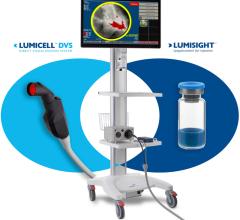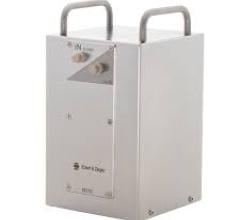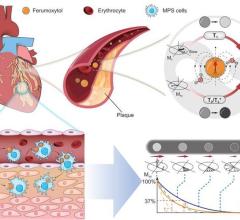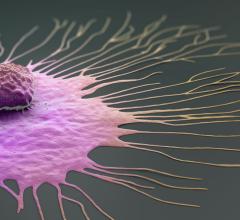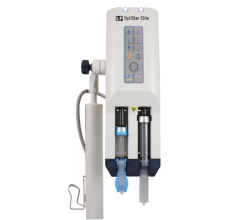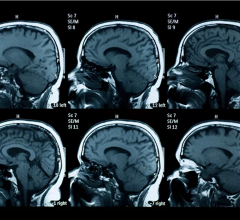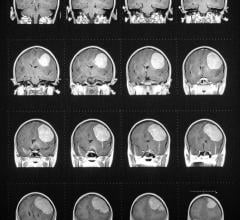July 17, 2008 - GE Healthcare’s iodixanol, an isosmolar contrast medium, shows lower incidence of elevated serum creatinine (SCr) or decreased glomerular filtration rate (GFR) than iopromide, according to a study written by a team of physicians and researchers at the Medical University of South Carolina, and published in “Radiology”, a peer-reviewed journal for the field of radiology.
The study included 117 patients with decreased renal function, defined as SCr>1.5 mg/mL or GFR
Fewer patients administered iodixanol showed an SCr increase of 25 percent or greater, 8.5 percent vs. 28 percent respectively. No patients in either group showed a contrast media related adverse event at the 30- or 90-day follow-up. There was a clinically-relevant GFR reduction of 5mL/min in significantly more patients in the iopromide group than in the iodixanol group; 42.3 percent vs. 24.1 percent.
The study concluded that while intravenous contrast material application in high-risk patients is unlikely to be associated with permanent adverse outcomes, SCr levels after contrast material administration are lower in the iodixanol group than in the iopromide group.
The authors noted their findings may differ from other recently published studies on the topic. According to the text of the study, “Our [the authors] systematic serial assessment of SCr level and GFR over 3 days after CM [contrast media] administration may have been more sensitive to detect SCr-level changes compared with the single sampling at a variable interval (48-72 hours) after contrast medium administration in the prior investigation. Considering that in most patients with decreased renal function, the SCr will peak in the first 72 hours after CM administration, multiple measures may provide greater accuracy regarding SCr dynamics.”
“This study confirms the favorable safety profile of iodixanol in patients undergoing CT scans who may be at-risk for nephropathy,” said Richard Vitti, M.D., associate director medical & professional services in GE Healthcare.
For more information: www.gehealthcare.com, http://radiology.rsnajnls.org/


 July 09, 2024
July 09, 2024 

